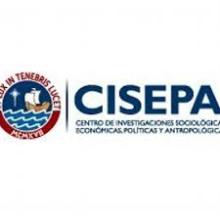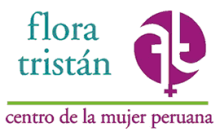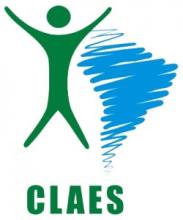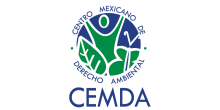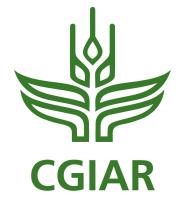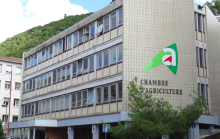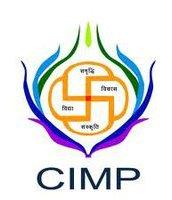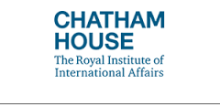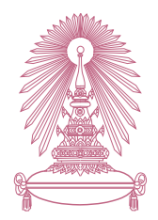A Biblioteca Land Portal inclui recursos de mais de 1.890 provedores de informações nacionais e internacionais. Saiba mais sobre as organizações e instituições que utilizam o Land Portal para partilhar as suas pesquisas, dados e histórias de acesso aberto.
Centro de Investigación y Promoción del Campesinado
El Centro de Investigación y Promoción del Campesinado (CIPCA) empezó a gestarse una tarde de octubre de 1970, bajo la iniciativa de tres jesuitas –Luís Alegre, Xavier Albó y Francisco Javier Santiago–, con el propósito de que la nueva institución pudiera ayudar a “buscar los caminos más eficaces para que los campesinos de Bolivia encuentren cauces propios para su desarrollo estructural y su integración en el país”.
La temática del trabajo de CIPCA es el desarrollo rural: economía campesina indígena, organización y liderazgo; tierra territorio y recursos naturales; derechos de los pueblos indígenas, género, interculturalidad, participación social y política. Asimismo, CIPCA busca combinar la investigación con la acción y el trabajo a nivel local con la incidencia a nivel nacional.
En los últimos años CIPCA ha trabajado intensamente con las organizaciones campesinas indígenas para contribuir a que se constituyan en actores relevantes en el proceso de cambios legales y sociales del país. Asimismo, ha desarrollado capacidades para la incidencia en políticas públicas a favor de la población campesina indígena.
Actualmente, CIPCA cuenta con la oficina de la dirección general en La Paz, y siete oficinas regionales: CIPCA Altiplano, CIPCA Cochabamba, CIPCA Cordillera, CIPCA Santa Cruz, CIPCA Beni, CIPCA Norte y CIPCA Pando.
MISIÓN
Contribuir al fortalecimiento organizativo, político, económico y cultural de pueblos indígena originario campesinos (OIC), y desde esta opción, participar en la construcción de una Bolivia democrática, autonómica, unitaria en su diversidad, intercultural, equitativa y sostenible económica y ambientalmente.
Contexto
Los factores y tendencias del contexto a tomarse en cuenta son:
Nuevas gestiones de gobiernos con continuidades y opciones de cambio.
Continuarán las trabas para el avance hacia el Estado plurinacional con autonomía
Incertidumbre y perspectivas en la economía boliviana
Desarrollo rural en un contexto de modernización y extractivismo
Persistencias, oportunidades y riesgo de mayor confrontación en y entre organizaciones indígena originario campesinas
Tendencias, desafíos y oportunidades en la relación gobiernos - ONGs
Centro de Investigaciones Agroalimentarias
El Centro de Investigaciones Agroalimentarias (CIAAL) fue creado el 17 de mayo de 1995, a partir de la transformación institucional del entonces denominado Grupo de Estudios sobre el Sistema Alimentario Venezolano (GESAV, creado bajo el Convenio ULA-Fundación Polar) que venía funcionando desde 1990. Con fecha 26/09/1995, por decisión del Consejo Universitario de la Universidad de Los Andes, se transformó en el CIAAL, como una Unidad adscrita a la Facultad de Ciencias Económicas y Sociales de esta universidad. Las líneas de investigación del CIAAL fueron iniciadas en virtud de un convenio suscrito entre la Fundación Polar (hoy Fundación Empresas Polar), una ONG de amplia y valiosa trayectoria en el país y la Universidad de Los Andes (ULA).
El CIAAL, formado por profesores e investigadores pertenecientes a varias Facultades de la Universidad de Los Andes (ULA), está sin embargo adscrito administrativamente a la Facultad de Ciencias Económicas y Sociales (FACES) de esa Universidad. Fundada en 1785, la ULA esta situada en el estado Mérida, Venezuela y cuenta en la actualidad con 10 facultades.
Al CIAAL están adscritos cerca de 13 investigadores; además publica la revista Agroalimentaria de forma bianual, y colabora en otras publicaciones a nivel nacional e internacional.
La FACES está constituida por las escuelas de Economía, de Administración, Contaduría y de Estadística.
Centro de Investigaciones Diego Barros Arana
El Centro de Investigaciones Diego Barros Arana de la DIBAM, tiene como misión desarrollar investigación al más alto nivel en las áreas de Historia y Ciencias Sociales; promover la publicación de monografías y colecciones de fuentes que junto con poner en valor el patrimonio cultural, ofrezcan nuevas interpretaciones de la trayectoria histórica y realidad social chilena; y desarrollar actividades de extensión que permitan dar a conocer a la comunidad académica sus trabajos y los de los investigadores y profesionales de la DIBAM.
Una de las tareas más representativas de la Dirección de Bibliotecas, Archivos y Museos (Dibam) es la amplia labor de investigación que en diferentes áreas del conocimiento y sobre variados temas y problemas se desarrolla en su interior. Entre éstas, las relativas a las Ciencias Sociales y Humanidades tienen ya una larga tradición y son numerosos los profesionales que se ocupan de ella.
De esta amplia labor de investigación resultan, entre otros, publicaciones que acrecientan el patrimonio cultural del país, catálogos y bibliografías, otros textos de naturaleza informativa y actividades de extensión y difusión. En definitiva, la creación de un nuevo conocimiento y la puesta en valor del patrimonio cultural que la Dibam tiene por misión resguardar, acrecentar y difundir.
Entre las unidades de la Dibam destinadas a las labores arriba descritas, se destaca el Centro de Investigaciones Diego Barros Arana, creado en 1990 con el propósito de impulsar la actividad de investigación y estudio, y de preparar publicaciones generales de carácter científico y literario de la Dibam.
Centrando su quehacer en un contexto en que la sociedad chilena ha ido experimentando significativos cambios como consecuencia del proceso de modernización del país, todo lo cual ha significado la configuración de un escenario cultural marcado por la pluralidad y la diversidad, pero que también hace sentir una creciente demanda por rescatar, afirmar o, simplemente, recomponer antiguas identidades, el Centro se ha planteado el desafío de responder a dichas demandas en el campo que le es propio.
Para lograr lo anterior, ha desarrollado líneas de investigación y publicaciones que, junto con responder a las demandas particulares de la Dibam, sean capaces también de satisfacer las nuevas necesidades de la sociedad contemporánea, entre ellas, una concepción más amplia de lo cultural, que deje atrás la visión elitista que tradicionalmente ha predominado en el país.
Surgen así sus colecciones: Sociedad y Cultura; Antropología; Escritores de Chile; Fuentes para la Historia de la República; Fuentes para el Estudio de la Colonia y Ensayos y Estudios; todas las cuales, junto a los libros publicados fuera de la colección, pretenden precisamente, rescatar, mostrar y difundir, la más amplia variedad de manifestaciones históricas y literarias constitutivas del patrimonio cultural nacional.
Centro de Investigaciones Sociológicas, Económicas, Políticas y Antropológicas
El Centro de Investigaciones Sociológicas, Económicas, Políticas y Antropológicas (CISEPA) forma parte de la Facultad de Ciencias Sociales y los Departamentos de Ciencias Sociales y de Economía. Desde nuestra fundación, en 1966, combinamos el enfoque académico e interdisciplina
Objetivos
- Promover la investigación científica social e interdisciplinaria en los distintos campos que competen a las disciplinas de Antropología, Economía, Ciencia Política y Sociología.
- Fortalecer las redes de investigación existentes entre los profesores de Departamentos de CCSS y Economía, con el esfuerzo de investigadores jóvenes y nuevos enfoques interdisciplinarios.
- Promover e incentivar la creación de grupos de investigación, talleres, seminarios y otras actividades que promuevan investigación, intercambio, y debates en Ciencias Sociales desde una perspectiva interdisciplinaria.
- Mejorar la comunicación de las contribuciones de la actual investigación en Ciencias Sociales fuera de la universidad priorizando a sectores no académicos (sector público, medios de comunicación, empresariado, redes internacionales, etc.).
- Asegurar la participación de los investigadores de CISEPA de manera activa en los debates públicos a través de eventos de análisis de coyuntura, balance de prospectiva, etc.
- Ser un centro para la colección, análisis y difusión de herramientas, metodologías y datos para la investigación en las ciencias sociales.
Centro de la Mujer Peruana Flora Tristán
El Centro de la Mujer Peruana Flora Tristán es una institución feminista que fue creada en 1979 como una asociación civil sin fines de lucro. Tiene como misión “combatir las causas estructurales que restringen la ciudadanía de las mujeres y/o afectan su ejercicio. En consecuencia se propone incidir en la ampliación de la ciudadanía de las mujeres y en las políticas y procesos de desarrollo para que respondan a criterios y resultados de equidad y justicia de género”.
El quehacer institucional se orienta a:
El fortalecimiento de la participación, acción y expresión política de las mujeres.
La formulación y negociación de políticas públicas e iniciativas de reforma legal.
La gestión y monitoreo de programas dirigidos a la obtención de logros estratégicos para las mujeres.
La capacitación a agentes claves para la implementación de acciones orientadas al empoderamiento de las mujeres, la equidad y la justicia de género.
La producción de conocimientos especializados que sustenten las propuestas y enriquezcan la visión política de las mujeres.
La información, educación y comunicación dirigida a la opinión pública.
VISIÓN:
La visión de CMP Flora Tristán es “una sociedad democrática fortalecida y sin discriminación ni exclusión de ningún tipo, donde las mujeres ejercen plenamente sus derechos y su ciudadanía”.
Centro di Ateneo per le Biblioteche dell'Università di Napoli Federico II
Il Centro di Ateneo per le Biblioteche "Roberto Pettorino" provvede al coordinamento del sistema bibliotecario di Ateneo, costituito dalla Biblioteca digitale e dalle biblioteche che ricevono dall'Ateneo i fondi per il proprio funzionamento, ed eroga servizi centralizzati.
Centro Dom Helder Câmara de Estudos e Ação Social
O CENDHEC, é uma associação civil, para fins não econômicos, cuja missão é “defender e promover os direitos humanos em especial de crianças, adolescentes, moradoras e moradores de assentamentos populares e grupos socialmente excluídos, contribuindo para a transformação social, rumo a uma sociedade democrática, eqüitativa e sem violência”.
A instituição conta com duas linhas de atuação, estas desenvolvidas através do Programa Direito à Cidade e o Programa de Promoção e Defesa dos Direitos da Criança e do Adolescente. Ambos com a meta de defender direitos e fortalecer a sociedade civil para a construção de uma sociedade democrática.
Centro Latino Americano de Ecología Social
CLAES (Centro Latino Americano de Ecología Social) es una organización no gubernamental independiente, dedicada a la investigación, acción y promoción de la ecología social. Reconociendo una vinculación recíproca entre grupos humanos con su entorno ambiental, en un contexto histórico, se consideran problemas socioambientales, vinculándose la investigación con la acción, desde un compromiso ético con la defensa de la vida y la promoción de alternativas al desarrollo. CLAES fue fundado en 1989, su sede se encuentra en Montevideo (Uruguay).
CLAES está integrado por un equipo multidisciplinario, con investigadores y promotores que cubren varias disciplinas y provenientes de distintas experiencias de formación personal. Buena parte del equipo trabaja en las oficinas del centro en Montevideo, mientras que otros integrantes se encuentran en otros países de la región.
Una breve historia: CLAES nació a partir del grupo de trabajo en ambiente y desarrollo en el Centro Franciscano y Ecológico (CIPFE), Uruguay, que operaba desde inicios de la década de 1980. En el seno de aquel centro, fueron cobijados distintos grupos de activistas e intelectuales, y a lo largo de un proceso de maduración cada una de sus unidades cobró autonomía. En el área ambiental, desde CIPFE surgieron CLAES, que se enfocaba en cuestiones de ecología social, ambiente y desarrollo a nivel continental, y CEUTA, el centro de estudios que en Uruguay se dedica a tecnologías apropiadas y temas afines. CLAES mantiene una coordinación de trabajo y administración con CEUTA hasta la actualidad.
CLAES participó activamente en la creación de distintas redes nacionales y continentales, y durante varios años apoyó con sus delegados a la Red Uruguaya de ONGs Ambientalistas. Asimismo, sus representantes actuaron en distintos espacios internacionales, tales como comisiones temáticas de IUCN o paneles de expertos en PNUMA, o en Uruguay, como diferentes comisiones asesoras del Ministerio de Medio Ambiente. El centro apoyó o colaboró en la creación de distintos espacios colectivos, y entre los más recientes se encuentran la plataforma para promover transiciones hacia las alternativas al desarrollo o sobre ecología social.
Actividades, temas, apoyos: CLAES mantiene distintas líneas de trabajo articuladas con organizaciones y redes ciudadanas en diferentes países de la región, adaptando sus aportes a las necesidades locales y nacionales, y colaborando con colegas y amigos. No se busca replicar esfuerzos ni competir con organizaciones amigas, sino trabajar con ellas, apoyándolas y compartiendo ideas y recursos.Las líneas de trabajo están articuladas alrededor de la temática del ambiente y el desarrollo, y se despliega en campos específicos como recursos naturales y biodiversidad, agricultura y manejo de la tierra, economía, integración latinoamericana y comercio internacional, democracia y derechos humanos, y globalización. El centro mantiene sitios webs de información para cada uno de esos campos temáticos.
El centro participa activamente en eventos, como mesas redondas, talleres o congresos, en coordinación y en apoyo a iniciativas de distintos grupos. Realiza publicaciones en coordinación con otras instituciones, publica parte de sus trabajos en varias series de documentos (tales como sus Observatorios en Desarrollo, y en Globalización, o los Documentos de Trabajo) y mantiene su propio sello editorial, Coscoroba.
En estas actividades el centro logra su financiamiento por distintos proyectos, apoyados o que fueron apoyados, o en coordinación, entre otros por el Ministerio del Ambiente de Uruguay, el Programa de las Naciones Unidas para el Medio Ambiente (PNUMA), Oxfam, la fundación C.S. Mott, Misereor, las fundaciones F. Ebert, R. Luxemburg y H. Boell, la fundación Ford, gobiernos departamentales en Uruguay, RedGE de Perú, Agencia Canadiense de Desarrollo Internacional, AECI de España, etc
Centro Mexicano de Derecho Ambiental, A.C
OBJETIVOS
El Centro Mexicano de Derecho Ambiental, A.C. (CEMDA) es una organización no gubernamental, apolítica y sin fines de lucro que desde hace 28 años trabaja para la defensa del medio ambiente y los recursos naturales. Somos una de las principales organizaciones de la sociedad civil ambiental en México cuyo eje fundamental de trabajo es el fortalecimiento, consolidación, armonización, aplicación y cumplimiento efectivo del sistema jurídico-ambiental vigente.
CEMDA fue fundado en agosto de 1993, en el contexto de la firma del Tratado de Libre Comercio con Estados Unidos y Canadá (TLC), a iniciativa de un grupo de abogados mexicanos interesados en el desarrollo, aplicación efectiva y mejoramiento del derecho ambiental como medio efectivo para la protección del medio ambiente y los recursos naturales de México.
En CEMDA el ámbito de nuestra labor ha sido tanto rural como urbano y de alcance local, municipal, estatal, regional, nacional e incluso internacional.
MISIÓN
Promover y defender el Derecho a un Medio Ambiente sano en México, con un enfoque multidisciplinario y colectivo, para la protección de las personas y el patrimonio natural.
VISIÓN
Un México donde se respeta y garantiza el derecho a un medio ambiente sano, en el que las personas viven con bienestar y en armonía con la naturaleza.
Así mismo, ser un articulador de diálogo entre los diferentes actores y contribuir al fortalecimiento del bienestar social.
Centro Nacional de Memoria Histórica
El Centro Nacional de Memoria Histórica es un establecimiento público del orden nacional, adscrito al Departamento para la Prosperidad Social (DPS), que tiene como objeto la recepción, recuperación, conservación, compilación y análisis de todo el material documental, testimonios orales y los que se obtengan por cualquier otro medio, relativo a las violaciones ocurridas con ocasión del conflicto armado interno colombiano, a través de la realización de investigaciones, actividades museísticas, pedagógicas, entre otras que contribuyan a establecer y esclarecer las causas de tales fenómenos, conocer la verdad y contribuir a evitar su repetición en el futuro.
Centro Peruano de Estudios Sociales
El Centro Peruano de Estudios Sociales es una institución privada sin fines de lucro, fundada en 1976, especializada en temas que atañen al desarrollo agrario y rural. Su objetivo es brindar su aporte a las tareas de mejorar las condiciones de vida y producción de agricultores y pobladores rurales en la perspectiva de contribuir a forjar una sociedad peruana más democrática y justa.
El CEPES trabaja temas agrarios y rurales desde diferentes ángulos y perspectivas: investigaciones socioeconómicas, promoción y capacitación a organizaciones de pequeños agricultores, asistencia a programas productivos y de financiamiento rural, y los relacionados al medio ambiente a través del seguimiento y la presentación de propuestas relativas al aprovechamiento sostenible de los recursos naturales, particularmente de la tierra y el agua.
Desde esta perspectiva, contribuye al desarrollo del agro nacional, buscando el acceso de los productores a tecnologías modernas, crédito, mercados, información e investigación, entre otros. Promueve una efectiva participación de éstos en la toma de decisiones sobre políticas agrarias, en el desarrollo regional, el bienestar social y una adecuada gestión y manejo de los recursos naturales.
El equipo profesional del CEPES es multidisciplinario. Está integrado por economistas, ingenieros agrónomos, abogados, científicos sociales, especialistas en ciencias de la comunicación, tecnología informática, bibliotecología y ciencias administrativas.
Centro Terra Viva
Missão
Uma gestão dos recursos naturais baseada em conhecimentos científicos, ambientalmente sã, economicamente viável e institucionalmente responsável.
Visão
Contribuir para uma melhor fundamentação técnico-científica das decisões ambientais, para que os apelos à participação pública na gestão ambiental, incluídos nas políticas, estratégias e na legislação ambiental nacional sejam respondidos, positivamente, por uma sociedade civil com capacidade de dar contribuições informadas e relevantes nesta área.
ÁREA DE INCIDÈNCIA
Governação Ambiental Participativa: Prioriza a implementação participativa da legislação, políticas, estratégias e programas ambientais ao nível local, assim como a capacitação dos municípios, administrações distritais, conselhos locais e comités comunitários de gestão de recursos naturais e o sector privado, em matéria de gestão ambiental;
Investigação e Monitoria Ambiental: Tem o propósito de disseminar conhecimentos, promover a defesa e o uso adequado dos ecossistemas e espécies marinhas e costeiras, através da promoção de actividades turísticas, social e ambientalmente sustentáveis, ao longo da costa;
Preservação de Ecossistemas e Biodiversidade: Aposta na implementação de políticas e estratégias nacionais para a criação de áreas de conservação, incluindo parques transfronteiriços;
Educação e Consciencialização Ambiental: Promove a divulgação de informação ambiental assim como a implementação de programas formais e informais de capacitação em gestão ambiental.
CEPT University
CEPT University focuses on understanding, designing, planning, constructing and managing human habitats. Its teaching programs aim to build thoughtful professionals and its research programs deepen understanding of human settlements. CEPT University also undertakes advisory projects to further the goal of making habitats more liveable. Through its education, research and advisory activities, CEPT strives to improve the impact of habitat professions in enriching the lives of people in India's villages, towns and cities.
The University comprises five faculties. The Faculty of Architecture was established as the 'School of Architecture' in 1962. It focuses on design in the private realm. The Faculty of Planning, focused on planning in the public realm, was established in 1972 as the 'School of Planning'. The Faculty of Technology, which concentrates on engineering and construction, was established in 1982 as the 'School of Building Science and Technology'. The Faculty of Design was established in 1991 as the 'School of Interior Design'. It deals with habitat related interiors, crafts, systems, and products. Faculty of Management was established in 2013 and it focuses on Habitat and Project Management.
CEPT University takes its name from the 'Centre for Environmental Planning and Technology'. CEPT and the various schools that it comprises were established by the Ahmedabad Education Society with the support of the Government of Gujarat and the Government of India. The Government of Gujarat incorporated CEPT as a university in 2005. In 2007 the University Grants Commission recognized CEPT University under section 2(f) of the UGC Act, 1956. The Department of Scientific and Industrial Research (DSIR) of the Government of India recognizes the University as a Scientific and Industrial Research Organization (SIRO).
Ceres
Ceres is a sustainability nonprofit organization working with the most influential investors and companies to build leadership and drive solutions throughout the economy. Through powerful networks and advocacy, Ceres tackles the world’s biggest sustainability challenges, including climate change, water scarcity and pollution, and inequitable workplaces.
Our mission: Ceres is transforming the economy to build a sustainable future for people and the planet.
CGIAR
CGIAR is the only worldwide partnership addressing agricultural research for development, whose work contributes to the global effort to tackle poverty, hunger and major nutrition imbalances, and environmental degradation.
It is carried out by 15 Centers, that are members of the CGIAR Consortium, in close collaboration with hundreds of partners, including national and regional research institutes, civil society organizations, academia, development organizations and the private sector.
The 15 Research Centers generate and disseminate knowledge, technologies, and policies for agricultural development through the CGIAR Research Programs. The CGIAR Fund provides reliable and predictable multi-year funding to enable research planning over the long term, resource allocation based on agreed priorities, and the timely and predictable disbursement of funds. The multi-donor trust fund finances research carried out by the Centers through the CGIAR Research Programs.
We have almost 10,000 scientists and staff in 96 countries, unparalleled research infrastructure and dynamic networks across the globe. Our collections of genetic resources are the most comprehensive in the world.
What we do
We collaborate with research and development partners to solve development problems. To fulfill our mission we:
- Identify significant global development problems that science can help solve
- Collect and organize knowledge related to these development problems
- Develop research programs to fill the knowledge gaps to solve these development problems
- Catalyze and lead putting research into practice, and policies and institutions into place, to solve these development problems
- Lead monitoring and evaluation, share the lessons we learn and best practices we discover;
- Conserve, evaluate and share genetic diversity
- Strengthen skills and knowledge in agricultural research for development around the world
Making a difference
We act in the interests of the world’s poorest and most vulnerable. Our track record spans four decades of research.
Our research accounted for US$673 million or just over 10 percent of the US$5.1 billion spent on agricultural research for development in 2010. The economic benefits run to billions of dollars. In Asia, the overall benefits of CGIAR research are estimated at US$10.8 billion a year for rice, US$2.5 billion for wheat and US$0.8 billion for maize.
It has often been cited that one dollar invested in CGIAR research results in about nine dollars in increased productivity in developing countries.
Sweeping reforms for the 21st century
Political, financial, technological and environmental changes reverberating around the globe mean that there are many opportunities to rejuvenate the shaky global food system. Developments in agricultural and environmental science, progress in government policies, and advances in our understanding of gender dynamics and nutrition open new avenues for producing more food and for making entrenched hunger and poverty history.
The sweeping reforms that brought in the CGIAR Consortium in 2010 mean we are primed to take advantage of these opportunities. We are eagerly tackling the ever more complex challenges in agricultural development. We are convinced that the science we do can make even more of a difference. To fulfill our goals we aim to secure US$1 billion in annual investments to fund the current CGIAR Research Programs.
CGIAR has embraced a new approach that brings together its strengths around the world and spurs new thinking about agricultural research for development, including innovative ways to pursue scientific work and the funding it requires. CGIAR is bringing donors together for better results and enabling scientists to focus more on the research through which they develop and deliver big ideas for big impact. As a result, CGIAR is more efficient and effective, and better positioned than ever before to meet the development challenges of the 21st century.
We are no longer the ‘Consultative Group on International Agricultural Research’. In 2008 we underwent a major transformation, to reflect this and yet retain our roots we are now known simply as CGIAR.
CGIAR System-wide Program on Property Rights and Collective Action
The Systemwide Program on Collective Action and Property Rights (CAPRi) is one of several inter-center initiatives of the Consultative Group on International Agricultural Research (CGIAR)created to foster research and promote collaboration on institutional aspects of natural resource management between CGIAR research centers, national agricultural research institutions, and other sources. Its Secretariat is hosted by the Environment and Production Technology Division of the International Food Policy Research Institute (IFPRI) in Washington, DC. The program stresses comparative research that yields international public goods. The conceptual framework deals explicitly with the effect of differences in the biophysical, socioeconomic, and policy environment. At the same time, we recognize the value of comparisons that cut across countries, ecoregions, and resources. An understanding of the factors that facilitate effective local organizations and appropriate property regimes in one resource sector can be provide valuable insights for another resource.
Program Overview
Institutions of collective action and property rights influence how people use and manage natural resources, and subsequently affect the condition of natural resource systems. The CGIAR Systemwide Program on Collective Action and Property Rights (CAPRi) addresses these issues through an inter-center initiative involving all 15 of the Consultative Group on International Agricultural Research (CGIAR) centers and over 400 national agricultural research institutes and universities in developing and industrialized countries.
The CAPRi program examines the formation and effectiveness of voluntary, community-level organizations and property institutions as they relate to natural resource management. Collective action and property rights are of special concern to the CGIAR because of their effect on farmers’ adoption of innovations, on natural resource management, and on poverty reduction. Because natural resource management issues emerge in the forefront of development concerns we face today, the elaboration of viable strategies to ensure the future productivity of resources demands better understanding of the motivating forces that contribute to their sustainability. Before this program was instituted, many CGIAR and national institutes were grappling with these issues separately. The CAPRi program, convened by the International Food Policy Research Institute (IFPRI), coordinates these efforts for more effective understanding.
Collective action refers both to the process by which voluntary institutions are created and maintained and to the groups that decide to act together. The term "property" covers the range of institutions governing access to a particular stream of benefits. Property regimes are usually divided into three categories: state, common, and private. This program considers all three types.
Property rights and collective action affect people’s livelihoods. The most vulnerable and marginalized rural groups often lack access to resources because they lack secure property rights and find participation in collective action too costly due to time and resource constraints. Tenure security provides key assets for food security, allowing the poor to help themselves by growing food, investing in more productive activities, or in some instances using property as collateral for credit. Collective action can contribute to poverty reduction through mutual insurance, increased opportunities for income generation, and improved provision and access to public services.
Addressing these complex interactions between institutions, natural resources, and human livelihoods requires an interdisciplinary approach that combines insights and methods from social and biophysical scientists as well as practitioners. By fostering collaboration among CGIAR centers, national research institutions, government, nongovernmental, and international organizations, CAPRi brings together the body of expertise required to examine the environmental and livelihoods impacts of policy and institutional change.
The program stresses comparative research that yields international public goods. The conceptual framework deals explicitly with the effect of differences in the biophysical, socioeconomic, and policy environment. At the same time, CAPRi recognizes the value of comparisons that cut across countries, ecoregions, and resources. An understanding of the factors that facilitate effective local organizations and appropriate property regimes in one resource sector can be valuable for developing policies for another resource.
CAPRi has been funded by the Governments of Norway and Italy, German Federal Ministry for Economic Cooperation and Development (BMZ), the World Bank, and the Ford Foundation.
Since 2012, CAPRi is part of and supported by the CGIAR Research Program on Policies, Institutions, and Markets (PIM).
Goals & Objectives
The overarching goal of CAPRi is to contribute to policies and practices that reduce rural poverty by analyzing and disseminating knowledge on the ways that collective action and property rights institutions influence the efficiency, equity, and sustainability of natural resource use.
In particular, CAPRi’s objectives are to:
- Increase knowledge on Collective Action and Property Rights institutions in natural resource management and their effectiveness under different conditions;
- Identify concrete policy instruments that facilitate and encourage the formation, improved functioning, resilience, and spontaneous evolution of organizations of users and property institutions that assure optimal resource use, and promote partnerships between local organizations, states, civil society, and private entities;
- Strengthen the capacity of national and CG research centers, non-governmental organizations, universities, and local organizations.
Chamber of Agriculture and Forestry of Slovenia
Role:
Chamber of Agriculture and Forestry of Slovenia is the umbrella interest organization of natural and legal persons in the Republic of Slovenia engaged in agriculture, forestry and fishery. Its central task is to protect and represent their interests, to consult them and accelerate economical and environment friendly activities.
Preferential tasks:
- Acceleration of development and improvement of economic conditions
- Assurance of specialist services operation
- Co-formation of legislation
- Improvement of social conditions in life
- Keeping settlement of Slovenian rural areas
- Promotion of Slovenian agriculture at home and abroad
Specialist services of the chamber:
- Agricultural advisory service
- Selection and monitoring production in stockbreeding
- Forestry advisory service
- Centers for fruit-growing and nursery
Chambres d'agriculture France
Les Chambres d’agriculture au service du développement des agricultures et des territoires
Les Chambres d’agriculture, créées en 1924, sont des établissements publics dirigés par des élus.
Elles représentent l’ensemble des acteurs du monde agricole, rural et forestier : exploitants, propriétaires, salariés, groupements professionnels…
Le réseau des Chambres d’agriculture est investi de 3 missions, issues du Code rural et amendées par Loi d’avenir de l’agriculture du 13 octobre 2014 :
Contribuer à l’amélioration de la performance économique, sociale et environnementale des exploitations agricoles et de leurs filières
Accompagner dans les territoires, la démarche entrepreneuriale et responsable des agriculteurs ainsi que la création d’entreprise et le développement de l’emploi
Assurer une fonction de représentation auprès des pouvoirs publics et des collectivités territoriales
Présentes au niveau départemental, régional et national, les Chambres d'agriculture sont constituées de 4 200 élus et emploient plus de 8 000 personnes.
Chan Robles
Chan Robles was founded on May 28, 1988. It was then known as Joselito Guianan Chan & Associates based in Manila.
In 1991, Atty. Joselito Guianan Chan was joined by Atty. Reynaldo Bustos Robles to form Chan Robles.
Both partners are active, experienced practitioners, authors and publishers of law books, professors of law and professional consultants in various fields of law.
From its humble beginnings, Chan Robles has now more than a dozen full-time lawyers together with a full complement of professional consultants, paralegal and support staff.
The people composing Chan Robles believe that its continued growth is the result of its faithful commitment to meet the diversity and challenges of practicing law in the present times by providing clients with a wide range of professional services and increased specialization.
The strong bond and team spirit among the members of Chan Robles are its most profound asset. The self - motivation, aggressiveness and dynamism of its members have contributed much to what it is today and what it will be in the future.
Chancellor College, University of Malawi
Chancellor College is the largest among the constituent colleges of the University of Malawi. In the year 1973, the college was relocated from Blantyre to Zomba, where it rests in the shadow of the majestic Zomba Mountain, home to flora, fauna and myth.
The college prides itself on its commitment to the achieving of sustainable social, economic and technological development in Malawi. This is an objective that is met through the continued – and ever increasing – supply of the society with well-educated graduates in a variety of disciplines, as well as through innovative research relevant to Malawi and the neighbouring region.
Ever since its establishment, the college has produced graduates who have gone on to become leaders in various sectors of Malawian society.
Chandragupt Institute of Management Patna
Chandragupt Institute of Management Patna (CIMP) was established in 2008 as an autonomous institution under the Societies Act, with active support from the government of Bihar. It is an AICTE-approved and NBA accredited institution, offers a two-year full-time program in Post Graduate Diploma in Management. The institute was established with the objective of contributing substantially to the academic and development credentials of Bihar, while fulfilling the primary role of training students to become effective managers.
Chatham House
Founded in 1920, Chatham House engages governments, the private sector, civil society and its members in open debate and confidential discussion on the most significant developments in international affairs. Each year, the institute runs more than 300 private and public events – conferences, workshops and roundtables – in London and internationally with partners. Our convening power attracts world leaders and the best analysts in their respective fields from across the globe.
Independent and Trusted Analysis
Chatham House carries out independent and rigorous analysis of critical global, regional and country-specific challenges and opportunities. It consistently ranks highly in the University of Pennsylvania’s annual Global Go To Think Tank Index, where it has been assessed by its peers as the No. 1 think tank outside the US for eight consecutive years, No. 2 worldwide for the past five years and, significantly, in 2016 was ranked No. 1 in the survey’s Foreign Policy and International Affairs category for the first time.
The institute’s reports, papers, books and other research outputs are a vital resource for leaders and policy-makers in government, the private sector and civil society. International Affairs, Britain’s leading journal of international relations, was founded by and is edited at the institute. The institute’s magazine, The World Today, provides authoritative analysis and up-to-date commentary on current topics. The Chatham House library has one of the longest-standing specialist collections of material on international affairs in the United Kingdom. The collections are digitally archived and searchable.
Chatham House is independent and owes no allegiance to any government or to any political body. It does not take institutional positions on policy issues.
- See more at: https://www.chathamhouse.org/About#sthash.MiBwABU3.dpuf
Chiang Mai University
Chiang Mai University (CMU) (Thai: มหาวิทยาลัยเชียงใหม่) is a public research university in northern Thailand founded in 1964. It has a strong emphasis on engineering, science, agriculture, and medicine. Its instructional mission includes undergraduate, graduate, professional and continuing education offered through resident instruction. Its main campus lies between Chiang Mai downtown and Doi Suthep in Chiang Mai, Chiang Mai Province.
The university was the first institution of higher education in northern Thailand, and the first provincial university in Thailand.
China Agricultural Economic Review
China Agricultural Economic review publishes quality research in the economics of agriculture, rural development, natural resources and the environment, providing an in-depth analysis of Chinese agricultural reform and practice.
Chr. Michelsen Institute
CMI is an independent development research institute in Norway. With a staff of 70 people, we address issues that shape global developments and generate knowledge that can be used to fight poverty, advance human rights, and promote sustainable social development.
Our researchers and programme advisors are social scientists mainly in the fields of anthropology, economics and political science. The pillars of our work are quality research, diversity in disciplines and methods and extensive research communication. We work closely with partners in the global South to ensure that local perspectives influence our priorities and research questions.
CMI employs staff with a wide range of complementary competencies and we are committed to building strong teams in all parts of the organization. We strive to be an efficient, professional, and financially robust organization that brings out the best in each other.
CMI is located on the campus of the University of Bergen in the city centre. We cooperate closely with the University and the Norwegian School of Economics. Together with the University we have established the Bergen Resource Centre for International Development, a venue for dialogue and communication on global challenges.
Christian Aid
Christian Aid is a Christian organisation that insists the world can and must be swiftly changed to one where everyone can live a full life, free from poverty.
We work globally for profound change that eradicates the causes of poverty, striving to achieve equality, dignity and freedom for all, regardless of faith or nationality. We are part of a wider movement for social justice.
We provide urgent, practical and effective assistance where need is great, tackling the effects of poverty as well as its root causes.
Our vision
Poverty is an outrage against humanity. It robs people of dignity, freedom and hope, of power over their own lives. Christian Aid has a vision - an end to poverty - and we believe that vision can become a reality.
From April 2012, Christian Aid's work will be focused around the goals and objectives identified in our corporate strategy, 'Partnership for change – the power to end poverty' .
Chronic Poverty Research Centre
The CPRC is an international partnership of universities, research institutes and NGOs established that provides research and policy guidance on the reduction of chronic poverty.
Nearly half a billion people are trapped in chronic poverty – poverty they experience over many years, often over their entire lives, and commonly pass poverty on to their children.
Those living in chornic poverty die prematurely from preventable causes and experince multi-dimensional deprivation – hunger, under-nutrition, illiteracy, lack of access to basic services, and social isolation and exploitation. CPRC research shows that they are economically active, but poor quality and insecurity of work, and social discrimination impacts on their economic prospects and access to basic services.
The long duration of chronic poverty shows that it is also structural – underpinned by social, economic and political systems. If not addressed urgently, today's poor may also be tomorrow's poor.
People in chronic poverty have benefited least from economic growth and development. They, and their children, will make up the majority of the 900 million people who will still be in poverty in 2015, even if the Millennium Development Goals are met. International efforts to reduce poverty cannot be selectively applied, with chronically poor people excluded on the basis that they are too hard to reach.
The MDGs can be fully achieved only if chronic poverty is tackled effectively. This means that understanding the manifestations, attributes and social dynamics of chronic poverty to develop additional national and international interventions is crucial.
The remaining period to 2015 should be used intensively to experiment with approaches and programmes which can help set the direction towards this goal.
CPRC research suggests that millions of people will remain in poverty without policies that specifically address their situation. Current efforts to reduce poverty often neglect the chronically poor – which also affects economic growth. As countries move to reduce absolute poverty, more of the poverty that will be left behind is chronic, increasing the urgency to tackle chronic poverty.
But current knowledge of what works for the poorest, and growing evidence that there are policies that can address chronic poverty, reveals that eradicating chronic poverty is possible. Avoiding taking action in an affluent world that has the knowledge and resources to eradicate it, is not just morally unjust, but also impacts on a state’s political legitimacy.
Chulalongkorn University
Established
1917
Naming
Chulalongkorn University was established in 1917 by King Vajiravudh (Rama VI) who named it after his father, King Chulalongkorn (Rama V), who laid the foundations for modern education in Thailand.
Vision 2012-2017
Chulalongkorn University is Thailand’s source of knowledge and reference, a guiding light of wisdom for sustainable development.
CICODEV Africa
CICODEV Africa est l'institut panafricain de recherche, de formation et d’action pour la Citoyenneté, la Consommation et le Développement en Afrique.
L’association a pour buts :
- de promouvoir l’émergence d’un mouvement de citoyens-consommateurs conscients de l’impact de leurs choix de consommation sur le commerce, l’environnement et le développement ;
- de promouvoir les choix et modèles de consommation citoyenne porteurs de développement et aptes à lutter contre la pauvreté ;
- de promouvoir les droits et devoirs des citoyens-consommateurs avec un accent particulier sur la promotion de la consommation des citoyens les plus défavorisés.
En vue d’atteindre ses objectifs par tous les moyens légaux et appropriés, CICODEV-Africa va, entre autres :
entreprendre des études et recherches sur les thèmes et sujets liés à son objet ;
réaliser des tests comparatifs de produits et services ;
mener des actions d’éducation, d’information, de formation, de communication ;
engager, accompagner et faciliter le dialogue avec les secteurs publics, les secteurs privés et les acteurs de la société civile sur les politiques de consommation et de développement ;
mener des actions de lobbying, de plaidoyer et des campagnes.
appuyer le renforcement des capacités de ses partenaires dans les techniques de recherche, d’analyse des politiques, de négociation et de relation média en vue de leur engagement dans la formulation de politiques pour le développement social et économique, et de mener des actions de plaidoyer et des campagnes crédibles et efficientes
susciter et favoriser l’échange d’expériences et la coordination des activités entre les membres et/ou les partenaires dont notamment l’organisation d’ateliers, de sessions de formation, de séminaires, de conférences, de voyages d’études, d’échanges d’information
réaliser, seule ou avec les organisations partenaires des actions et projets de développement pilotes avec les groupes et communautés de base
faire de la représentation auprès des instances de décision nationales, régionales ou internationales
mener toute autre activité légale pouvant concourir à atteindre ces objectifs
créer des sections dans tel pays pour ce faire
Ciências Sociais Unisinos
Ciências Sociais Unisinos é uma publicação quadrimestral da Universidade do Vale do Rio dos Sinos – Unisinos e dedica-se a publicar artigos inéditos que contribuam para a reflexão e o estudo interdisciplinar das Ciências Sociais.




